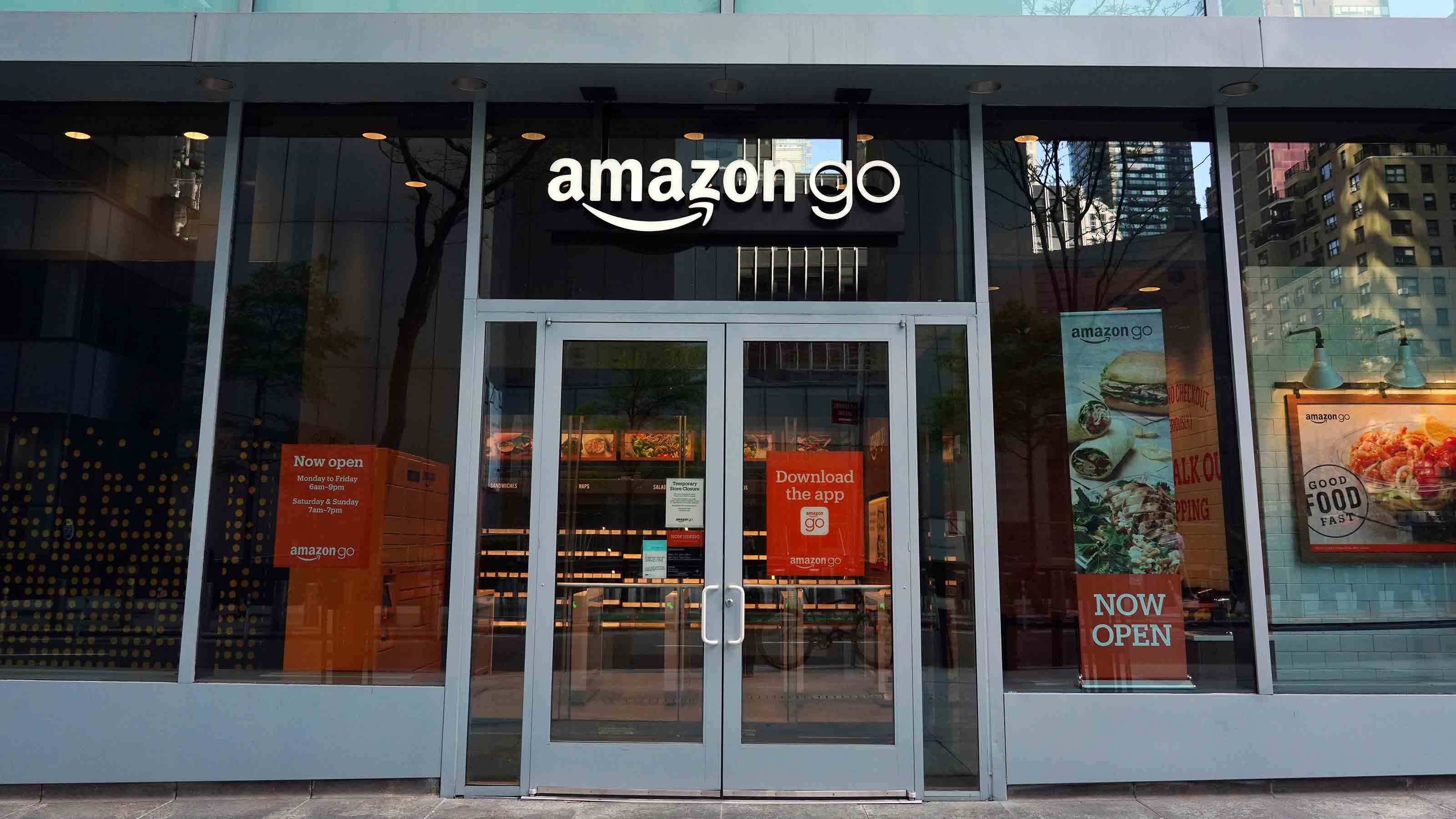The Pros' 10 Best S&P 500 Stocks to Buy Now
These top-rated S&P 500 stocks are compelling rebound plays, with analysts projecting 12-month upside of between 20% and 110% from current prices.


Profit and prosper with the best of Kiplinger's advice on investing, taxes, retirement, personal finance and much more. Delivered daily. Enter your email in the box and click Sign Me Up.
You are now subscribed
Your newsletter sign-up was successful
Want to add more newsletters?

Delivered daily
Kiplinger Today
Profit and prosper with the best of Kiplinger's advice on investing, taxes, retirement, personal finance and much more delivered daily. Smart money moves start here.

Sent five days a week
Kiplinger A Step Ahead
Get practical help to make better financial decisions in your everyday life, from spending to savings on top deals.

Delivered daily
Kiplinger Closing Bell
Get today's biggest financial and investing headlines delivered to your inbox every day the U.S. stock market is open.

Sent twice a week
Kiplinger Adviser Intel
Financial pros across the country share best practices and fresh tactics to preserve and grow your wealth.

Delivered weekly
Kiplinger Tax Tips
Trim your federal and state tax bills with practical tax-planning and tax-cutting strategies.

Sent twice a week
Kiplinger Retirement Tips
Your twice-a-week guide to planning and enjoying a financially secure and richly rewarding retirement

Sent bimonthly.
Kiplinger Adviser Angle
Insights for advisers, wealth managers and other financial professionals.

Sent twice a week
Kiplinger Investing Weekly
Your twice-a-week roundup of promising stocks, funds, companies and industries you should consider, ones you should avoid, and why.

Sent weekly for six weeks
Kiplinger Invest for Retirement
Your step-by-step six-part series on how to invest for retirement, from devising a successful strategy to exactly which investments to choose.
The S&P 500 Index is still down by double digits across 2022 despite a recent relief rally, so it's not difficult to find S&P 500 stocks that look like they're in trouble right now.
But just because some of the top U.S. corporations are in the red year-to-date doesn't mean you should avoid them altogether – in fact, in many cases, they're among the best stocks on the market.
Today, we're going to look at the 10 best S&P 500 stocks you can buy right now, according to consensus recommendations from analysts surveyed by S&P Global Market Intelligence. Each one of these stocks is sitting on negative returns since Jan. 1 … but each also boasts strong fundamentals and have consensus price targets that are anywhere between 20% and 110% from current levels. And a few of these stock picks don't have a single Sell rating against them.
There's always risk on Wall Street. And it can indeed be dangerous to "catch a falling knife" as the old saying goes. However, there is also something to be said for staking out a position in quality stocks regardless of the day-to-day movement on Wall Street.
If you're not afraid of taking on a new position in an environment where most other investors are selling, consider one or more of the market's best S&P 500 stocks.
Data is as of May 30. Analysts' consensus recommendations courtesy of S&P Global Market Intelligence. Stocks are listed in reverse order of analysts' consensus rating (the lower the score, the stronger the Buy recommendation).

#10: Micron Technology
- Market value: $81.9 billion
- Dividend yield: 0.6%
- Analysts' consensus recommendation: 1.39 (Strong Buy)
- Analysts' average 12-month price target: $110.00 (50% upside potential)
Semiconductor giant Micron Technology (MU, $73.32) is one of several beaten-down technology stocks that the analyst community remains very bullish on in 2022.
First, some history: MU stock has shot up well more than 800% over the past decade – more than four times the returns of the S&P 500 – thanks to consistent expansion in both the top and the bottom line. Micron is now the world's third-largest DRAM chipmaker and its fifth-largest flash memory chipmaker.
And it's not slowing down. Revenue is set to grow by more than 20% both this fiscal year and next, with even larger expectations for earnings-per-share expansion (58% this year, 31% in FY2023). Those are impressive figures in any environment, but are simply jaw-dropping numbers considering the lingering supply chain disruption issues that the global chip industry continues to face.
What's more, Micron is a U.S. chipmaker headquartered in Boise, Idaho, with major facilities in Texas, Utah and California. This has proven to be a powerful value proposition to policymakers who are increasingly interested in "strategic autonomy" amid uncertainty around supply chains caused by the pandemic and the invasion of Russia. Micron recently unveiled a $150 billion global expansion plan, which is sure to give it an even more attractive geographic base that will give U.S. and European customers confidence they can avoid future disruptions.
With a strong history of outperformance and a bright future for sales and profits, many analysts remain bullish on this stock despite challenges in the semiconductor space recently. MU remains one of the S&P 500's best stocks, in the analysts' eyes, as a result.

#9: Iqvia Holdings
- Market value: $41.7 billion
- Dividend yield: N/A
- Analysts' consensus recommendation: 1.37 (Strong Buy)
- Analysts' average 12-month price target: $265.59 (20% upside potential)
Iqvia Holdings (IQV, $220.50) is the sole healthcare company among the top-rated stocks in the S&P 500 Index. However, it is equal parts a technology company, as it provides advanced analytics and clinical research services to the life sciences industry worldwide, including monitoring of clinical drug trials and central laboratory services.
This is a tremendous area to be involved in because it has all the upside that comes with high-growth biotechnology research … but much less risk as Iqvia itself isn't trying to develop new and unproven drugs for rare diseases. It's also fairly low risk in the current environment as the pharmaceuticals industry continues to invest heavily in R&D. As a result, IQV stock is predicting 5% revenue growth and 13% earnings growth this year that accelerates to 10% sales growth and 15% profit growth in fiscal 2023.
Digging deeper, there's a lot to like about the outlook of this stock based on recent earnings commentary. For instance, in its Q1 report at the end of April, Iqvia noted record quarterly R&D Solutions services bookings that tallied more than $1.9 billion, as well as a record R&D Solutions contracted backlog in excess of $25 billion – up more than 9% year-over-year (YoY).
Sure, the stock is in its own bear market and off more than 20% in 2022 alone. But the numbers above should encourage investors looking beyond Wall Street's short-term disruptions.
The analyst community apparently likes what it sees, based on recent moves; Guggenheim initiated coverage at a Buy rating at the end of May, and Piper Sandler upgraded IQV stock to Overweight, from Neutral, shortly after its earnings report. William Blair (Outperform, equivalent of Buy) is downright stunned at the stock's performance this year and believes it will bounce back.
"IQV is down 25% year-to-date despite seemingly strong fundamentals, and the stock's forward earnings multiple of 22 times is equal to the five-year average despite accelerating organic growth trends over the last few years," a William Blair analyst team said in late April. "We would assume a company with a business model such as IQVIA's, given its exposure to large pharma's durable spending patterns and strong balance sheets, would be experiencing a relative expansion in valuation, and thus are surprised to see the stock's recent weakness."

#8: Alaska Air Group
- Market value: $6.1 billion
- Dividend yield: N/A
- Analysts' consensus recommendation: 1.36 (Strong Buy)
- Analysts' average 12-month price target: $77.07 (59% upside potential)
You might think it odd to find a mid-cap stock in the airline industry on a list that's full of blue-chip stocks. But don't underestimate Alaska Air Group (ALK, $48.43). This carrier regularly gets high marks for customer satisfaction, and is among one of the most efficient regional players in the U.S.
And it's not just muddling through with its existing footprint, either. ALK has expanded its Boeing 737 MAX order book several times since late 2020 – most recently, upping it to 93 MAX models, with options to purchase another 52 more.
This is as clear of a sign as you'll find that Alaska Air's management is laser-focused on growth as the pandemic fades away, shifting to larger airplane models to increase capacity and serve new routes. The carrier has already grown to become the No. 5 North American airline by fleet size, and it's looking to move up the food chain.
The airline industry is prone to plenty of financial troubles, with several high-profile bankruptcies over the years. However, Alaska Air is soundly profitable and is plotting a more than 50% YoY surge in revenue as it rebounds from the disruptions of the pandemic and looks to the future.

#7: Amazon.com
- Market value: $1.2 trillion
- Dividend yield: N/A
- Analysts' consensus recommendation: 1.36 (Strong Buy)
- Analysts' average 12-month price target: $3,643.56 (58% upside potential)
Another Big Tech stock that's a favorite among analysts despite underperformance in 2022 is e-commerce titan Amazon.com (AMZN, $2,302.93). And one of the reasons that there is still optimism around this consumer discretionary company lately is the simple fact that for all the market disruption and talk of hyperinflation, consumers are stills spending briskly.
We saw this lately via a broad swath of earnings reports from retailers, including brick-and-mortar players like Macy's (M) that have posted solid sales and customer traffic. And specifically for Amazon, we saw the e-tailer post a net sales increase of 7% in Q1 – up to a mammoth $116.4 billion in the first quarter.
By now, investors know Amazon isn't just about e-commerce, either. Its Q1 report in April showed its all-important Amazon Web Services cloud computing biz has grown 34% annually over the last two years, and 37% year-over-year in the first quarter. That's what's really going to power this stock in the future.
Loop, MKM and Truist analysts all reiterated their Buy ratings on the stock in the last month or two. Argus Research's Jim Kelleher says "We believe that this lagging performance provides an opportunity to establish or dollar-average into positions in AMZN stock, which remains the undisputed category leader."
Looking forward, with projections of about 12% revenue growth this full fiscal year and another 17% growth in FY2023, there is indeed a lot of reason to consider the recent rollback in shares as a buying opportunity in what much of Wall Street currently considers one of the best S&P 500 stocks to buy.

#6: Microsoft
- Market value: $2.0 trillion
- Dividend yield: 0.9%
- Analysts' consensus recommendation: 1.33 (Strong Buy)
- Analysts' average 12-month price target: $361.47 (32% upside potential)
Second only to Apple in terms of market value, Microsoft (MSFT, $273.24) is one of the largest corporations on the planet by any measure. Last year, the software provider reported cash and investments worth $130 billion, on top of net operating cash flow of $77 billion.
This scale hasn't done much for MSFT shares in 2022, however. as the company has seen a slump of about 20% since New Year's Day, significantly worse than the broader S&P 500 Index. But the good news is that beyond these stock price challenges, it's clear like the core business of Microsoft has a lot going for it.
In January, the tech titan posted great earnings that featured 20% YoY revenue growth and a 22% jump in EPS. What's more, it is increasingly important that Microsoft's cloud segment surpassed $22 billion to see an even faster growth rate of 32%.
Then in May, its fiscal Q3 report showed an 18% improvement in revenue, as well as operating income expansion of 19%, led by another 32% year-over-year jump in cloud revenue.
Wall Street clearly likes what it sees here, with Jeffries and Wedbush analysts both reiterating their Outperform ratings this spring. A consensus price target of $361.47 is more than 30% above MSFT's current levels.

#5: EPAM Systems
- Market value: $19.5 billion
- Dividend yield: N/A
- Analysts' consensus recommendation: 1.33 (Strong Buy)
- Analysts' average 12-month price target: $416.77 (22% upside potential)
Among these 10 top S&P 500 stocks, global software engineering services company EPAM Systems (EPAM, $340.35) is the one you likely haven't heard of. And considering shares are down about 50% year-to-date in 2022, you might think the company is imminently forgettable.
But it's important to understand the unique challenges that led to the recent declines – and why the future outlook of EPAM is still bright.
EPAM is an IT consultant business that has 14,000 employees based in Ukraine, and more in neighboring Belarus. That's in part because founder Arkadiy Dobkin is Belarusian. Perhaps unsurprisingly, the stock went from $600 to start the year to a low of $200 in March after news of the Russian invasion of Ukraine. That was in large part because of all the uncertainty, including the fact that EPAM pulled its full-year guidance altogether.
However, the strong analyst support for this stock proves that analysts who are in the know still have faith in its global operations despite the humanitarian crisis in Ukraine that is disrupting EPAM's workforce. What's more, the company is still posting breakneck growth, with Q1 numbers out in may showing an amazing 50% surge in revenue.
There is obviously a lot of risk here, and it's hard to overstate the terrible devastation in Ukraine that has crippled the local economy and could weigh on the workforce for years to come. But Wall Street insiders still like what they see in this stock. Needham analysts, for instance, say they "remain positive on the shares given the strong demand backdrop, track record of impressive execution from management, and EPAM's long growth runway with both new clients and existing clients."
Based on the continuous positive coverage, it's possible the negative impact is fully price into shares, and that there's future upside for this tech consultant.

#4: Alphabet
- Market value: $1.5 trillion
- Dividend yield: N/A
- Analysts' consensus recommendation: 1.29 (Strong Buy)
- Analysts' average 12-month price target: $3,248.37 (45% upside potential)
Google parent Alphabet (GOOGL, $2,246.33), off more than 20% year-to-date, is among the mega-cap tech stocks that have suffered in 2022. But don't be fooled into thinking that this company is somehow on the brink.
Alphabet is projecting a 15% increase in its top line this fiscal year and another 15% rise in fiscal 2023. Part of this improvement is because Google's ad network remains the go-to platform for digital marketing, and we continue to see brisk growth in this category. According to Insider Intelligence data, U.S. digital ad spending is expected to hit $239.89 billion in 2022 – up 14% from 2021 – and total U.S. digital ad spend will top $300 billion by 2025 to make up more than three-quarters of all media spending.
What's more, from a structural perspective, it may be a great time to consider buying GOOGL stock. The firm has announced it will execute a 20-for-1 stock split in July, taking its share price down from about $2,000 per share to $100, which should allow for even greater trading liquidity and more accessibility for mom-and-pop investors.
Investors might not want to wait until that split, because in many ways, GOOGL stock could already be "cheap" – it trades for a forward P/E of about 19 right now, which is below both its historical norms and other fast-growing tech stocks.
Also, Alphabet is one of the top S&P 500 stocks on this list that boasts zero Sell or even Hold calls of any kind. That adds up to a consensus that this stock is worth holding regardless of short-term market volatility.

#3: Alexandria Real Estate Equities
- Market value: $27.5 billion
- Dividend yield: 2.8%
- Analysts' consensus recommendation: 1.27 (Strong Buy)
- Analysts' average 12-month price target: $226.82 (35% upside potential)
Structured as a real estate investment trust, or REIT, Alexandria Real Estate Equities (ARE, $168.59) is one of the oldest operators and developers of dedicated life science, technology and ag-tech campuses in the U.S. It publicly talks about its "innovative cluster" model, which is a belief that innovative companies are most successful when they are near each other and near top-tier academic institutions. All told, it has roughly 50 million square feet of space in top markets including San Francisco, Boston, New York and Seattle.
"Strong demand for ARE's development pipeline and the sheer size of its contribution to come remain key drivers of our positive outlook," say Baird analysts, who rate the stock at Outperform. "As new supply could be somewhat limited in the near term and as construction costs continue to rise, we expect ARE's large embedded base of cluster-centric assets to appreciate further.
There's a lot to like about this model. But what really has investors interested is the fact that revenue is set to surge 16% this year, driving a 75% surge in earnings to a projected $3.82 per share. On top of that, the top line should jump another 12% in fiscal 2023.
Risk-off sectors such as real estate have come into focus lately, both because of the hedge that physical property provides against inflationary pressures as well as the reliable nature of REITs like Alexandria that typically do business via long-term contracts that provide consistent cash flow. What's more, income investors well be encouraged by the fact that ARE's dividends have grown from just 86 cents a share in 2017 to $1.15 currently – a surge of 34% in just five short years.
RBC and JMP Securities join Baird and other analysts who have reiterated Buy-equivalent calls of late, making ARE the top-rated REIT in the S&P 500 Index at present.

#2: Monolithic Power Systems
- Market value: $20.4 billion
- Dividend yield: 0.75%
- Analysts' consensus recommendation: 1.23 (Strong Buy)
- Analysts' average 12-month price target: $559.80 (23% upside potential)
Shares of Monolithic Power Systems (MPWR, $455.85) have fared a bit better than the market at large this year, posting an 8% loss year-to-date vs. about 13% for the S&P 500.
However, what's interesting to many investors is the potential for this stock to deliver big-time gains over short periods of time.
Consider a massive surge of nearly 15% in a single session back in February, or more recently its double-digit gains across the month of May even as the rest of Wall Street continued to struggle.
These sprints higher tend to be driven by impressive facts that prove MPWR is doing better than many other companies lately. For instance, back in February, the run was sparked by stellar Q4 results that included a 44% surge in revenue, generous margins and a 25% boost to its dividend payment. And in May, Q1 numbers showed margins expanding yet again on a 12% jump in revenue, illustrating that this semiconductor company is not being limited by supply chain challenges that have disrupted other peers in the sector.
Monolithic Power Systems has a diversified operation, designing and selling semiconductor-based power solutions to a wide range of industries including computer companies, automotive manufacturers, industrial firms, communications providers and many others. This wide footprint is helping the company weather some of the volatility we've seen elsewhere – and based on a unanimously bullish Wall Street (10 Strong Buys, three Buys and no Holds or Sells), the pros expect this to be one of the best S&P 500 stocks to buy going forward.

#1: Caesars Entertainment
- Market value: $11.1 billion
- Dividend yield: N/A
- Analysts' consensus recommendation: 1.20 (Strong Buy)
- Analysts' average 12-month price target: $108.40 (110% upside potential)
Caesars Entertainment (CZR, $51.60) is the parent company of the iconic Caesars Palace in Las Vegas, as well as other newer resorts and digital gaming offerings. And while it's one of the smaller stocks on this list, it also enjoys the rosiest outlook by Wall Street analysts, who not only view the stock as a Strong Buy, but believe on average that it will more than double over the coming year.
That's because while Caesars was hit hard by the pandemic, it is plotting double-digit revenue growth this fiscal year and another double-digit surge in FY2023 as well. And after some massive short-term investments to build out its digital division, it is forecasting a return to profitability next year thanks to a massive surge in "iGaming" services.
Of particular note is how these digital offerings include a potentially lucrative sportsbook now that sports betting is legal in more than two dozen states across the United States. Considering the upcoming college football and NFL seasons, the time could be perfect for this arm to start delivering big-time results.
Throw in pent-up wanderlust that is lifting results at 52 domestic properties in 16 states, and it's easy to understand the optimism.
Yes, CZR has been battered in 2022. However, many analysts think that Caesars has not only found the bottom – but that it's also going to be one of the best S&P 500 stocks over the next year or so.
"We believe this quarter represents the trough in terms of digital profitability and that losses will be less severe going forward, with the goal of digital profitability before football season of 2023," says CFRA analyst Arun Sundaram (Buy).
Profit and prosper with the best of Kiplinger's advice on investing, taxes, retirement, personal finance and much more. Delivered daily. Enter your email in the box and click Sign Me Up.

Jeff Reeves writes about equity markets and exchange-traded funds for Kiplinger. A veteran journalist with extensive capital markets experience, Jeff has written about Wall Street and investing since 2008. His work has appeared in numerous respected finance outlets, including CNBC, the Fox Business Network, the Wall Street Journal digital network, USA Today and CNN Money.
-
 How Much It Costs to Host a Super Bowl Party in 2026
How Much It Costs to Host a Super Bowl Party in 2026Hosting a Super Bowl party in 2026 could cost you. Here's a breakdown of food, drink and entertainment costs — plus ways to save.
-
 3 Reasons to Use a 5-Year CD As You Approach Retirement
3 Reasons to Use a 5-Year CD As You Approach RetirementA five-year CD can help you reach other milestones as you approach retirement.
-
 Your Adult Kids Are Doing Fine. Is It Time To Spend Some of Their Inheritance?
Your Adult Kids Are Doing Fine. Is It Time To Spend Some of Their Inheritance?If your kids are successful, do they need an inheritance? Ask yourself these four questions before passing down another dollar.
-
 Dow Leads in Mixed Session on Amgen Earnings: Stock Market Today
Dow Leads in Mixed Session on Amgen Earnings: Stock Market TodayThe rest of Wall Street struggled as Advanced Micro Devices earnings caused a chip-stock sell-off.
-
 Nasdaq Slides 1.4% on Big Tech Questions: Stock Market Today
Nasdaq Slides 1.4% on Big Tech Questions: Stock Market TodayPalantir Technologies proves at least one publicly traded company can spend a lot of money on AI and make a lot of money on AI.
-
 Fed Vibes Lift Stocks, Dow Up 515 Points: Stock Market Today
Fed Vibes Lift Stocks, Dow Up 515 Points: Stock Market TodayIncoming economic data, including the January jobs report, has been delayed again by another federal government shutdown.
-
 Stocks Close Down as Gold, Silver Spiral: Stock Market Today
Stocks Close Down as Gold, Silver Spiral: Stock Market TodayA "long-overdue correction" temporarily halted a massive rally in gold and silver, while the Dow took a hit from negative reactions to blue-chip earnings.
-
 Nasdaq Drops 172 Points on MSFT AI Spend: Stock Market Today
Nasdaq Drops 172 Points on MSFT AI Spend: Stock Market TodayMicrosoft, Meta Platforms and a mid-cap energy stock have a lot to say about the state of the AI revolution today.
-
 S&P 500 Tops 7,000, Fed Pauses Rate Cuts: Stock Market Today
S&P 500 Tops 7,000, Fed Pauses Rate Cuts: Stock Market TodayInvestors, traders and speculators will probably have to wait until after Jerome Powell steps down for the next Fed rate cut.
-
 S&P 500 Hits New High Before Big Tech Earnings, Fed: Stock Market Today
S&P 500 Hits New High Before Big Tech Earnings, Fed: Stock Market TodayThe tech-heavy Nasdaq also shone in Tuesday's session, while UnitedHealth dragged on the blue-chip Dow Jones Industrial Average.
-
 Dow Rises 313 Points to Begin a Big Week: Stock Market Today
Dow Rises 313 Points to Begin a Big Week: Stock Market TodayThe S&P 500 is within 50 points of crossing 7,000 for the first time, and Papa Dow is lurking just below its own new all-time high.
